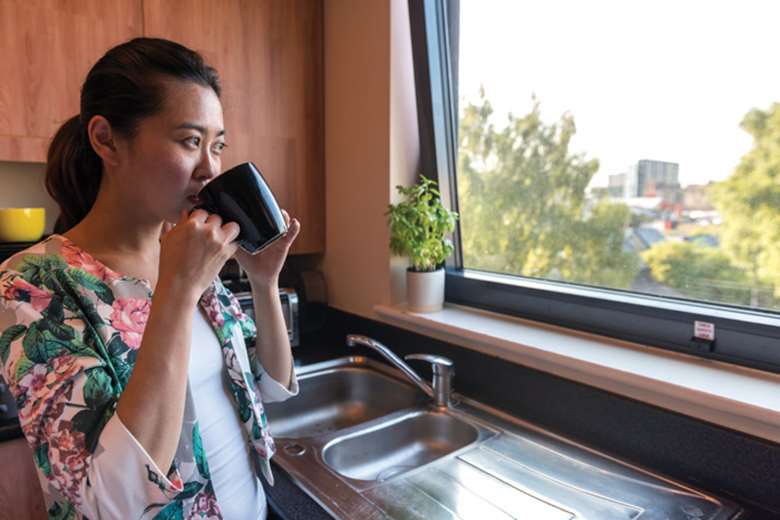Unregistered children’s homes: Legal Update
Kamena Dorling
Thursday, January 2, 2020
As the number of children being taken into care continues to rise, Kamena Dorling, head of policy and public affairs at Coram Children's Legal Centre, looks at concerns regarding unregulated and unregistered children’s homes.

There has been an increase recently in applications made for a court in family proceedings to “authorise a residential placement of a young person in circumstances where their liberty may be restricted”. This, combined with a widespread shortage of suitable placements, prompted the president of the Family Division, Sir Andrew McFarlane, to issue new court practice guidance to explain the registration and regulation structure applicable in England and Wales for residential care facilities for children and young people. The aim is to ensure that, where a court authorises placement in an unregistered unit, steps are taken by those running the unit to apply for registration, and that the court monitors that application. If registration is not secured the court will review its continued approval of the child’s placement in that unit.
Unregulated or unregistered?
A children’s home in England is defined in section 1(2) of the Care Standards Act 2000 (CSA) as an establishment that “provides care and accommodation wholly or mainly for children”, subject to the exceptions set out in section 1 and regulation 3 of the Children’s Homes (England) Regulations 2015. For example, there is an exception aimed at those providing accommodation for less than 28 days for the purposes of a holiday, or for cultural, educational, recreational or sporting activities.
“Unregistered” provision, where a child is being provided with a form of care somewhere that is not registered with Ofsted, is illegal. A children’s home in England providing care and accommodation must be registered. A person managing a children’s home in England must be registered in respect of that children’s home. The registered provider or manager is accountable for meeting the regulations, which set out standards that must be met, describing outcomes that each child must be supported to achieve while living in the children’s home.
By comparison, “unregulated” provision is permitted in law and includes when children, usually aged over 16, need support to live independently rather than full-time care. Ofsted does not regulate this type of provision. The most common type of unregulated provision is supported living, where children are visited and receive some support as they move towards independence. That said, local authorities still have a responsibility, as “corporate parents” to ensure that placements are safe and suitable.
Addressing unregistered provision
Registration under the CSA ensures registered persons and service providers are suitable to work with children and able to provide care to the required legal standards. In addition, it ensures provision is inspected by Ofsted and action can be taken to address any shortfalls.
Staff at an unregistered provider may not realise that they need to register with Ofsted – if, for example, a supported living provider has extended its offer without recognising that they have crossed the line into providing care.
However, some providers are deliberately not registering. There is a significant cost attached to compliance with the Children’s Home Regulations and Quality Standards. Under the CSA, Ofsted has powers to enter and inspect premises which they have reasonable cause to believe are being used as a children’s home. Where Ofsted finds that an unregistered children’s home is being run without registration it has the power to prosecute.
Accommodation for young people over 16
Accommodation for children aged over 16 remains an area of, in the words of Ofsted, “challenge and fluidity”. Housing can be provided without registration but the level of care covered by registration requirements is not specified in the CSA. Some young people as they move into independent living will require an additional level of support in order to make the transition due to, among other things, emotional or mental health needs. The challenge is that it is “the needs of the young people which determines the requirement of registration and not the model, and therefore it is not possible to define with any certainty that a setting will never require registration”.
POINTS FOR PRACTICE
- When making an application to the court for any order to authorise the deprivation of the liberty of a child, the applicant should make the court aware of the registration status of those providing the care and accommodation.
- If those providing the care are not registered, the court should be made aware of the reasons why registration is not required or the reasons for delay in seeking it. The applicant must make the court aware of the steps it is taking to ensure that the premises and support being provided are safe and suitable for the child. If no application for registration has been made, the court order should provide that it be submitted within seven working days. The court will review the registration status in a further 12 weeks.
- Local authorities can contact Ofsted to request access to the register of children’s homes.




